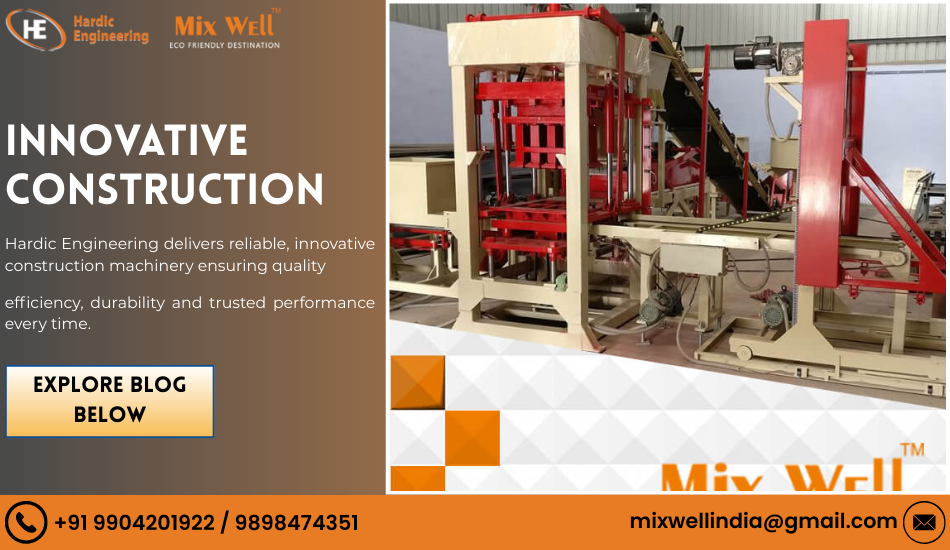
Finding a reliable brick making machine manufacturer in Ahmedabad is crucial for setting up a successful and profitable business in the construction industry. The city is a hub for industrial machinery, with many companies specializing in the production of high-quality, durable, and efficient brick making plants. These machines are essential for producing a variety of bricks, including fly ash bricks, concrete blocks, and paver blocks, which are in high demand due to rapid urban development and infrastructure projects. A reliable manufacturer not only provides state-of-the-art machinery but also offers excellent after-sales support, technical assistance, and guidance on plant setup and operation. Partnering with a trusted name ensures that your production line runs smoothly, consistently, and with minimal downtime, maximizing your return on investment and helping you meet market demands effectively.
The working principle of a modern brick making machine is based on a process of mixing, pressing, and curing. The process starts with the raw materials, which are typically a combination of fly ash, cement, sand, and stone dust, being fed into a pan mixer. Here, a precise amount of water is added to achieve the desired consistency. The mixer ensures a homogeneous mixture, which is vital for the strength and quality of the final product. Once the mixture is ready, it's transferred to the main brick-making machine, which is often a hydraulic press. This machine uses immense pressure to compress the mixture into solid, uniform bricks of various shapes and sizes. The high-pressure compaction is key to producing bricks with superior strength, density, and a smooth finish.
After the bricks are formed, they are automatically ejected onto a conveyor belt and then stacked. These "green bricks" are then moved to a curing area. Curing is a critical step where the bricks gain their final strength through a chemical reaction. This can be done by a simple water curing process, where the bricks are sprayed with water periodically, or a steam curing process for faster results. The entire operation, from material feeding to stacking, is often automated, which minimizes labor costs, reduces human error, and boosts overall productivity. This streamlined process allows manufacturers to produce a large volume of bricks efficiently, meeting the high demands of the construction market. A reliable machine guarantees this process is consistent and free of issues.
In Ahmedabad, several manufacturers have established themselves as reliable providers of brick-making machinery. Companies like Revomac Industries and Hardic Engineering are known for their quality products and extensive experience. These manufacturers not only supply a wide range of machines, from fully automatic fly ash brick plants to paver block machines, but they also offer complete solutions, including plant layout design and technical support. They use advanced technology and robust materials to ensure their machines are durable and perform at a high level. When selecting a supplier, check their market reputation, customer reviews, and the quality of their after-sales service. A reputable manufacturer will be a partner in your business, ensuring you have the right equipment and support to succeed in the competitive construction market.
Your Partner in Sustainable Building Material Manufacturing
Office Address
C-1, 77/1, Kaka Estate, Ambicanagar Road, Nr. National Plastic, Odhav, Ahmedabad – 382415, Gujarat, India.
Factroy Address
24, Shreeji Estate Near Sankalp Estate, Bakrol Cir, Ahmedabad-382430, Gujarat, India
mixwellindia@gmail.com
hardicengineering@gmail.com
+91 99042 01922
+91 98984 74351
Also Send Mail
© Hardic Engineering . All Rights Reserved.
